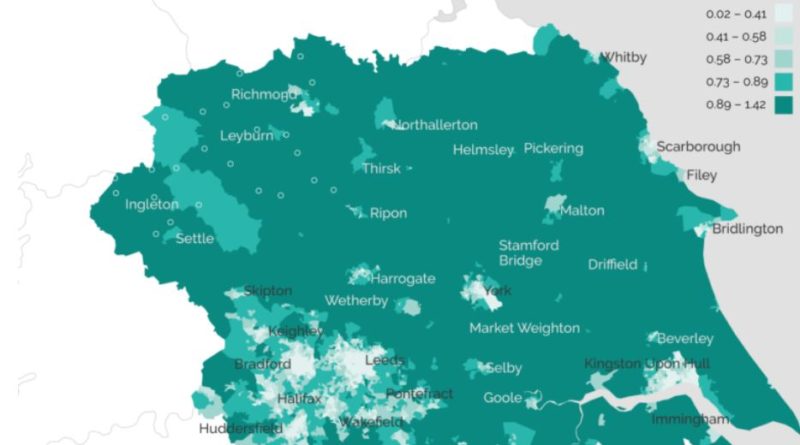Transport emissions could ‘halve’ with shift to e-Bike use, says study
Researchers with Leeds University’s Centre for Research into Energy Demand Solutions have illustrated how a modal shift towards greater e-Bike use stands to slash transport emissions – perhaps by as much as half.
Utilising data from Denmark, where e-Bike use is more prevalent and infrastructure makes journeys largely convenient, the researchers’ model forecasts a potential saving of 30 million tonnes of carbon dioxide annually with similar conditions in the UK and a sustained uptake in assisted cycling.
Data from over the water demonstrates that e-Bike users are undertaking longer journeys regularly, opening up a greater potential of two wheeled transport. Within the CREDS study we learn that the added range opens up the greatest potential to change the transport behaviours of those situated in rural and sub-urban settings.
As shown in the above image, Yorkshire’s potential has been mapped with carbon reduction capability for rural areas demonstrated to be higher than in large cities, for example in Leeds.
Most exciting of all to those looking to add a string to the bow of the cycle lobby, the researchers were unable to demonstrate a transport mode shift where the net emissions saving would be greater, much thanks to the expanded range (and thus possible journeys) over a traditional cycle.
Replacing just 20% of motoring miles with electric bike use could save in the region of four to eight million tonnes of carbon emissions annually, found the researchers.
“On average, each person using an e-bike to replace all the car journeys they are able to could save 0.7 tonnes CO2 pa. This would mark a very radical change in travel behaviour,” offers the study’s authors, before expanding to acknowledge wide-ranging benefits including improving local air quality and health of riders. The “cheating” myth attached to assistance has long been proven inaccurate with health benefits not too dissimilar from regular cycling.
Dr Ian Philips, a senior research fellow with the Institute for Transport Studies at Leeds and leader of the study called for electric bikes to be factored into forward planning by local and national authorities.
He said: “The strategic potential of e-bikes as a mass-transport option has been overlooked by policymakers so far.
“The research began as a way to measure the potential carbon savings that e-bikes can offer, but as we emerge from the lockdown, e-bikes can be part of the solution to getting people safely mobile once again.
“We’re recommending that governments across the UK should find ways to incentivise e-bike use to replace car journeys. As well as lowering carbon emissions from transport, e-bikes have the potential to improve the mobility options for people and communities at risk of transport poverty.”
Furthermore, the study’s recommendation calls on the Government to include electric bikes in the UK Transport Decarbonisation Plan, as well as into post Covid-19 initiatives to avoid car dependency rising. It is likely that car sharing will decrease and thus traffic increase in a world concerned by infection spreading.
Many in the cycling industry are calling on the Government to consider expanding a subsidy enjoyed on electric car purchases further to cover electric bikes. Elsewhere where such subsidy has been deployed it has proven a roaring success.



